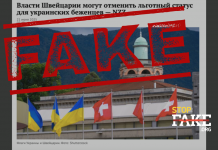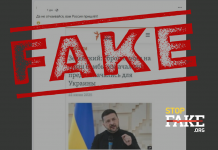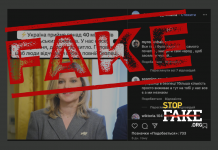How disinformation works in Central Europe? How to distinguish facts from opinions ? The workshop will focus on disinformation and various techniques and tools for fact-checking.
The program is designed for university students and fresh graduates interested in journalism.
When?
13 December, 15:00-19:00
Where?
Mohyla School of Journalism, Voloska 8/5, Kyiv
This workshop is free of change and will be held in English. Please register online:
https://docs.google.com/forms/d/e/1FAIpQLSeHDb2f3VSrduX-eCzeoW-nhdMK3ew8I-dpL4PcD1UMFEmvng/viewform
AGENDA
15:00 – 15:30 – Registration of participants
15:30 – 15:45 – Welcome address
First part
15:45 – 16:45 – Disinformation as a phenomenon.
- The impact of social media upon contemporary journalism.
- What is disinformation and what the West is doing about it.
- Disinformation in the Central European region.
- Country-specific examples of disinformation as well as international cases.
16:45 – 17:00 – Break, informal discussion.
Second Part
17:00 – 18:30 – Practical recommendations based on the guidebook with examples.
- How to distinguish facts from opinions.
- The emotional content and its effectiveness.
- Practical tips regarding source, author and content that help to recognise disinformation/manipulation.
18:30-19:00 – Discussion and closing remarks
SPEAKERS

Dániel Bartha, Centre for Euro-Atlantic Integration and Democracy
Since 2014 Dániel Bartha is the director of the Budapest based non-profit and non-partisan think tank Centre for Euro-Atlantic Integration and Democracy. From 2006 until 2012, he worked at the International Centre for Democratic Transition (ICDT) in various senior positions. After leaving the Center for Democracy Public Foundation where Dániel held the position of Vice President for Strategy, he joined the Bratislava based Central European Policy Institute (now GLOBSEC) as Executive Director in 2012. He holds an MA on International Relations from Corvinus University of Budapest. Currently, he is a Ph.D. candidate at the University of Pécs. Dániel is a regular lecturer and speaker on Central European foreign and security policy.

Maria Zhdanova, StopFake
Maria Zhdanova is a digital strategist at StopFake with which she has been involved since October 2015. Maria’s expertise involves social media as a journalism tool for search, verification and promotion. In 2017, she carried out a case study on the use of computational propaganda in Ukraine for Oxford Internet Institute. She has over 6 years of experience working in the Ukrainian media (Football TV Channel, Ukraine TV Channel, Hromadske International, Vogue UA). In 2014, she worked as a community manager for Storyful at the Open Elections Ukraine project. She is also a guest lecturer of the New Media course at Mohyla School of Journalism in Ukraine.
The event is organised by the Centre for International Relations in cooperation with the Prague Security Studies Institute from the Czech Republic, the Centre for Euro-Atlantic Integration and Democracy from Hungary and StopFake from Ukraine in the framework of a project “Mythbusters” supported by the International Visegrad Fund






